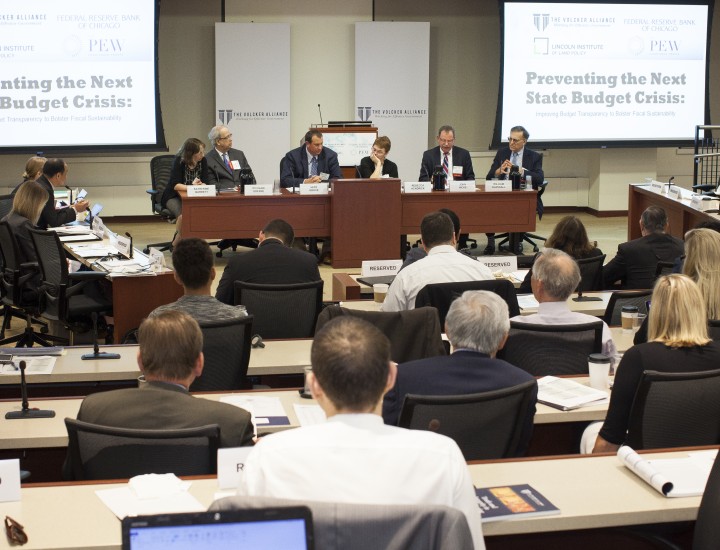New Research to Prevent State Budgeting Crises

New research by the University of Illinois and the Volcker Alliance could prevent future budgeting crises in Illinois, other states
Findings identify flaws in Illinois budgeting practices and establish best practices for transparency and accountability in state budgets
CHICAGO, Ill.—New research finds that Illinois does not follow basic principles of sound budgeting recommended by fiscal experts, and suggests ways that Illinois and other states can reform practices to avoid fiscal crises in the future.
Two reports released today by a team of researchers from the University of Illinois Institute of Government and Public Affairs (IGPA) and the Volcker Alliance demonstrate ways states can improve transparency and accountability. The reports will be presented at an event at the Union League Club of Chicago featuring a panel of experts on state finance. The event will be hosted by IGPA, the Volcker Alliance, and the Federal Reserve Bank of Chicago.
A working paper released by the Volcker Alliance, a nonpartisan organization established in 2013 by former Federal Reserve Board Chairman Paul A. Volcker, sets forth six basic principles of sound budgeting for states and provides ten recommendations for improved budgetary transparency, including disclosure of 1) the use of one-time revenue sources to cover recurring expenditures, 2) deferrals of spending, and 3) underfunding of infrastructure maintenance and public-worker retirement obligations.
“In order for elected officials to be able to govern effectively and citizens to be accurately informed about policy choices, states have to provide comprehensible information about their budgets,” said William Glasgall, Director of State and Local Programs for the Volcker Alliance. “This paper highlights some existing best practices and demonstrates the direction states need to be heading.”
Researchers from IGPA's Fiscal Futures Project found that Illinois’ budget practices are badly in need of reform. They assert, “The buy-now, pay-later content choices of the past were facilitated, even disguised, by then-existing procedural and reporting practices. Reform of these practices would improve budget transparency and accountability, and help prevent Illinois from getting into such dire fiscal straits in the future."
The IGPA team suggests five concrete steps that Illinois can take today: 1) Refine and expand multiyear budget planning, 2) Require meaningful fiscal notes to accompany legislation, 3) Modify cash-only budget reporting to include significant changes in liabilities and assets, 4) Clearly identify non-sustainable or one-time revenue sources, and 5) Adopt a broad-based budget reporting frame with meaningful spending and revenue categories consistently defined over time.
